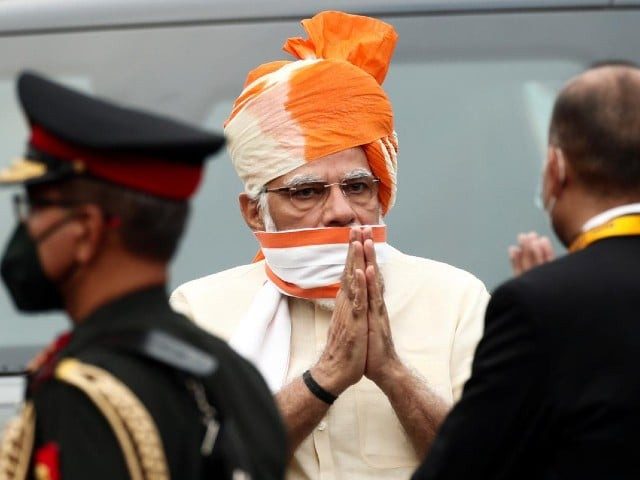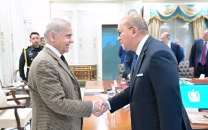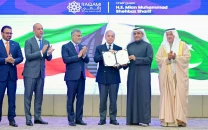India’s relentless terror campaign
Experts say New Delhi’s fingerprints can be seen over many incidents

From funding a long-running global disinformation campaign to sponsoring terrorism, Pakistan’s arch-foe India’s fingerprints can be seen over many incidents that have caused bloodshed, pain and suffering.
Recent evidence presented by a senior aide of the prime minister on national security suggests India was involved in all major terrorist attacks against Pakistan, including the infamous assault on the Army Public School in Peshawar that killed 145 people – 132 of them uniformed schoolchildren. The eight-hour long carnage in Peshawar is still the deadliest attack in the country’s history.
Experts believe Pakistan needs to respond by exposing India before the very international community it has been misleading for decades.
“We have a smoking gun in the form of Indian naval officer Kulbhushan Jadhav, who was caught, not only spying but orchestrating horrible acts of terrorism against Pakistan,” said Dr Talat Wizarat, an expert in international studies and foreign policy.
The current international order is not moralistic enough to pay attention to what India is doing. It is a world of double standards.
Major General (retd) Inamul Haq, a senior defence analyst
Wizarat pointed to his arrest as evidence of India’s involvement in terrorist activities across Pakistan. What could be more direct Indian involvement? she questioned.
Shortly after his arrest in 2016, Jadhav was charged with espionage, sabotage and fuelling terrorist activities in the southwestern province of Balochistan, which serves as an important plank in the China-Pakistan Economic Corridor (CPEC), a project that has irked India since its inception.
The longer-term objective of sponsoring terrorism and misinformation campaigns, Wizarat said, is to discredit Pakistan.
“One part of this whole exercise is to blame Pakistan, paint a negative image of the country to get a favorable response from western nations and then there is an economic dimension,” said Wizarat.
India, the foreign policy expert believes, is interested in bringing about a collapse of Pakistan’s economy. “Terrorism is one way of doing it and painting a bad image of Pakistan is another link in the same chain,” explained Wizarat.
In June this year, militants tried to storm Pakistan’s stock exchange in the southern port city of Karachi. The assault was thwarted by the security officers and the attackers were shot and killed. Hours after security forces gunned down four terrorists in the port city, Moeed Yusuf, the prime minister's special assistant on national security, called it a state-sponsored attack against Pakistan.
One part of this whole exercise is to blame Pakistan, paint a negative image of the country to get a favorable response from western nations and then there is an economic dimension.
Dr Talat Wizarat, an expert in international studies and foreign policy
“The world must wake up to suicidal tendencies of this destabilizing actor that is finding distractions to overcome its own failures and embarrassment. Our warnings have come true repeatedly. Whether on demographic re-engineering in Kashmir or sponsored terrorism against Pakistan,” said Yusuf in a post on Twitter. Months later in a rare cross-border interview with Karan Thapar, the prime minister’s aide squarely blamed India for inflicting terror on Pakistan. Yusuf also claimed that the handler of the 2014 terrorist attack on the Army Public School in Peshawar was in touch with “an Indian consulate”.
On India’s role in sponsoring terrorism, prominent defence analyst, Major General (retd) Inamul Haq said: “New Delhi has always been involved in such activities. It is an open secret.”
“Chanakya’s India is above morals. It will malign you; it will maim innocent people and do all sorts of things to achieve its goals,” General Haq said.
India is trying to claim regional hegemony and it is willing to use every trick in its bag and every resource it has, to become a hegemon.
Major General (retd) Inamul Haq, a senior defence analyst
Through its campaigns, he said, India is trying to make Pakistan a client state. “A state that is economically, politically, or militarily subordinate to another more powerful state,” General Haq explained.
“India is trying to claim regional hegemony and it is willing to use every trick in its bag and every resource it has, to become a hegemon,” he said.
Last week, a Brussels-based NGO that combats disinformation against the European Union uncovered a 15-year-old operation run by an Indian organisation. A network of hundreds of fake media outlets was being used to target the EU and the United Nations to serve Indian interests and discredit Pakistan. The EU DisinfoLab called it the “largest network” of disinformation they have exposed so far.
General Haq termed it as an exterior maneuver by India to change the environment in its own favour and against the adversary, which in this case is Pakistan.
When asked to comment about the response from the international community, General Haq said: “The current international order is not moralistic enough to pay attention to what India is doing. It is a world of double standards.”
The Narendra Modi administration, he said, is tapping on the reservoir of animosity against Pakistan.”
To counter India’s narrative, the defence analyst said, Pakistan also needs an agile exterior maneuver. “We also need to strengthen the domestic front. We can’t afford gaps within the society,” he said.
Dhaka to APS
About six years ago, the brazen attack on the Army Public School in Peshawar coincidentally happened on the same date Bangladesh, which was a part of Pakistan, became an independent nation.
Terming December 16 as a reminder of two tragic events, the fall of Dhaka and the massacre in Peshawar’s Army Public School, Wizarat said: “It’s not just a coincidence that these two terrible events in human history happened on the same date and evidently India played a role in both.”
The Bharatiya Janata Party government in New Delhi has a zero-sum model in their minds. Anything good that can happen to Pakistan is taken as a defeat.
Dr Talat Wizarat, an expert in international studies and foreign policy
“India has never accepted Pakistan. They have always tried to undermine us,” she added.
The Karachi-based foreign policy expert said that by painting Pakistan as a failed state or a state that is struggling with terrorism, India wants to prevent investors from entering Pakistan. “India is opposing the idea of CPEC tooth and nail only because they know that it has the potential of changing Pakistan’s economic trajectory.”
Pakistan, Wizarat said, can prevent India’s interference by strengthening its economy. “We have to build our economy. The sad reality in our world is that if you’re economically downtrodden, no one takes your political ideas seriously.”
When asked if she had any suggestions for India’s leadership, Wizarat candidly said: “I don’t think highly of Indian leadership, not even the Congress Party.”
The Bharatiya Janata Party government in New Delhi, she said, has a zero-sum model in their minds. “Anything good that can happen to Pakistan is taken as a defeat. There can be no advice given to the current Indian government. They only understand the language of action,” said Wizarat.
The expert said Pakistan needs to expose India more aggressively on the international stage.



















COMMENTS
Comments are moderated and generally will be posted if they are on-topic and not abusive.
For more information, please see our Comments FAQ